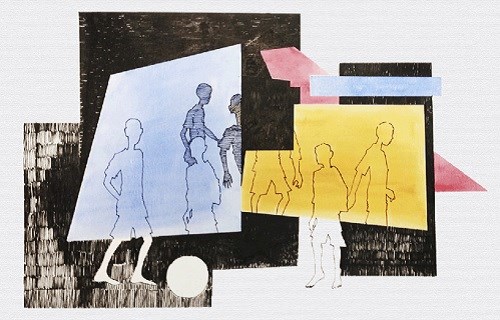Journalistic project maps trade with minors in European football
294 African and South-American players who arrived in Europe under the age of 18 play in the main football competitions across the continent, a new journalistic research project reveals.
Through data gathering and the personal accounts of three young players who share the dream of becoming the new international football star, Portuguese journalist Sofia de Palma Rodrigues shows that, in spite of recent tightening of the FIFA rules regulating the trading of under-aged players, hundreds of young players still leave their homes in the pursuit of a dream that very rarely comes true.
Using data from the football statistics site zerozero.pt, the project website Youth in Play presents data on the number of African and South American footballers currently playing in Europe and who arrived when they were under the age of 18. The research also shows how many of these players are still under 18 and what clubs they play in.
Bending rules in the hunt for talent
According to the research, Portugal is the country where most of the under-age players make their debut (109 of the 294 young players), and more than half of the 294 under-aged players come from former Portuguese colonies Guinea-Bissau, Brazil, Cape Verde and Angola. Many of them are still under-aged – and play in main European competitions. 30 European clubs have players on their squad who are under-aged and who originate from Africa or South America.
“Forty-nine African and nine South-American minors played in the main European clubs during the 2014/2015 season. Over half were playing in Portugal. The three big championship clubs – Benfica, FC Porto and Sporting – are the clubs which had the highest number of minors from these continents on their squads,” Joaquim Evangelista, the Chairman of the Portuguese Professional Footballers’ Union (SJPF) says in one of the articles on the project website. “Portugal is, for better or worse, an exceptional platform for this type of business.”
According to the Portuguese players’ chairman, clubs tend to disregard the regulations when fighting each other for new talent.
“Clubs all compete for the same new talent. (…) So, most of the times, clubs are not interested in following the rules that govern this sector, so they can have the best players. (..) There isn’t exactly a set of … a code of conduct between clubs when it comes to talent,” Evangelista says.
The three young footballers whose stories are featured on the project website include examples of how the FIFA regulation on minors can be bent and adapted in order for new talent to travel across continents.
The project has received support from the journalismfund.eu and recently won the AMI’s journalistic prize Journalism Against Indifference.
More information
Read more about the Youth in Play project and the three longreads about young footballers from Guinea-Bissau, Brazil and Nigeria and their journeys to Europe to play football:






